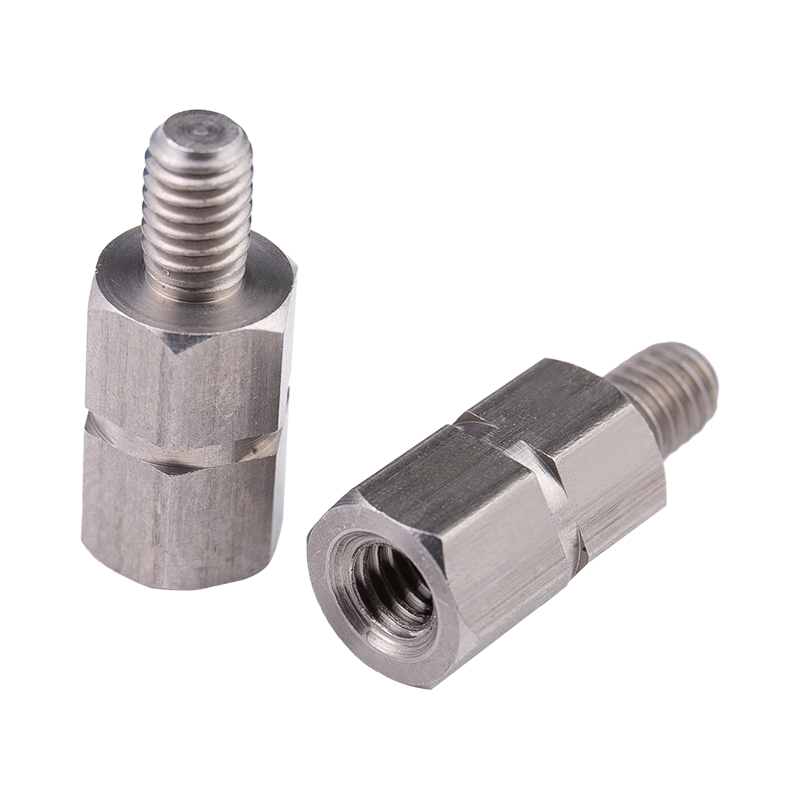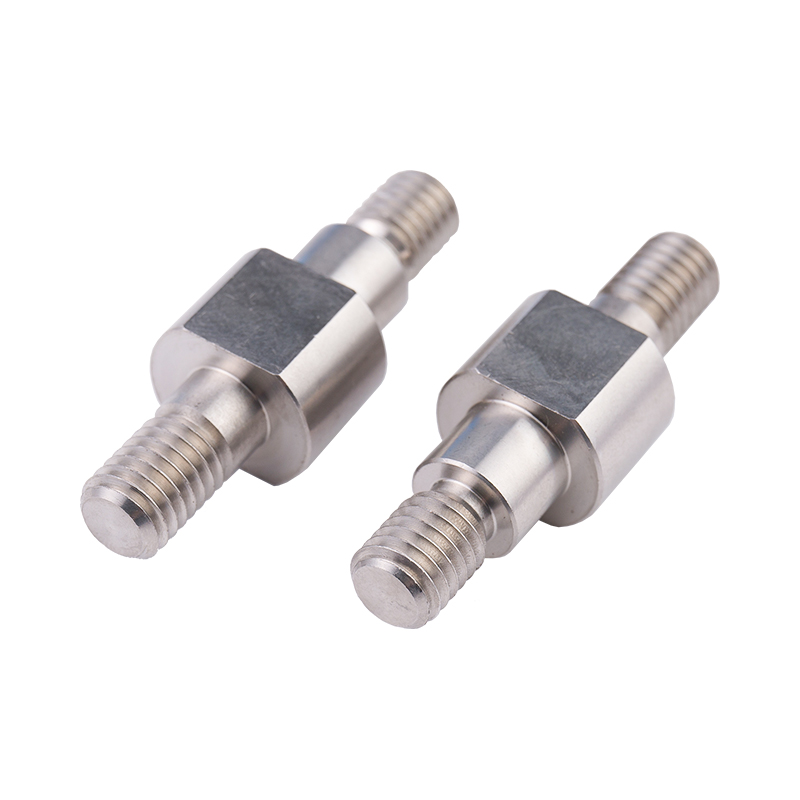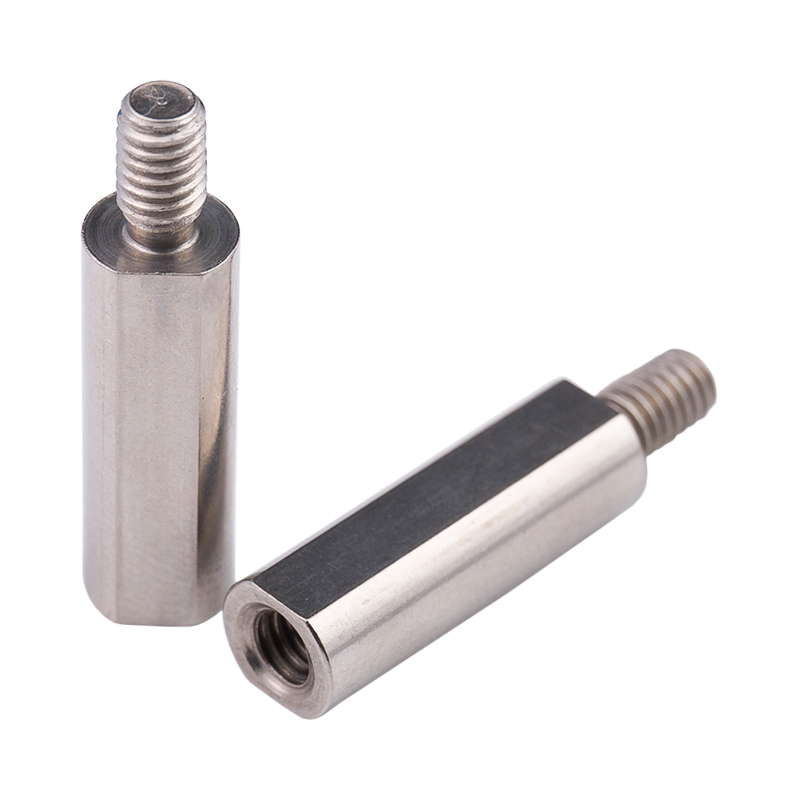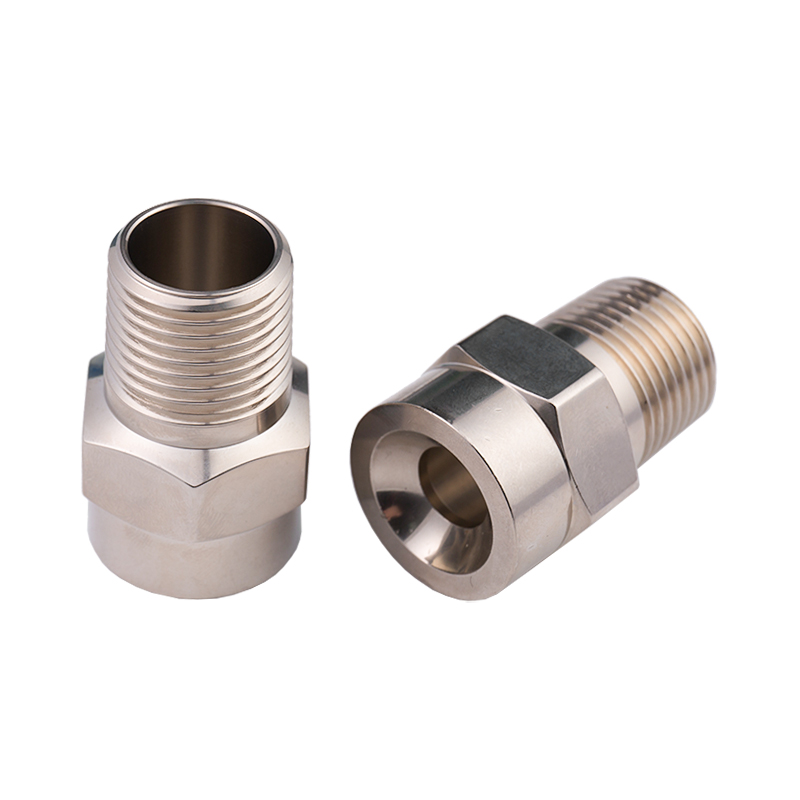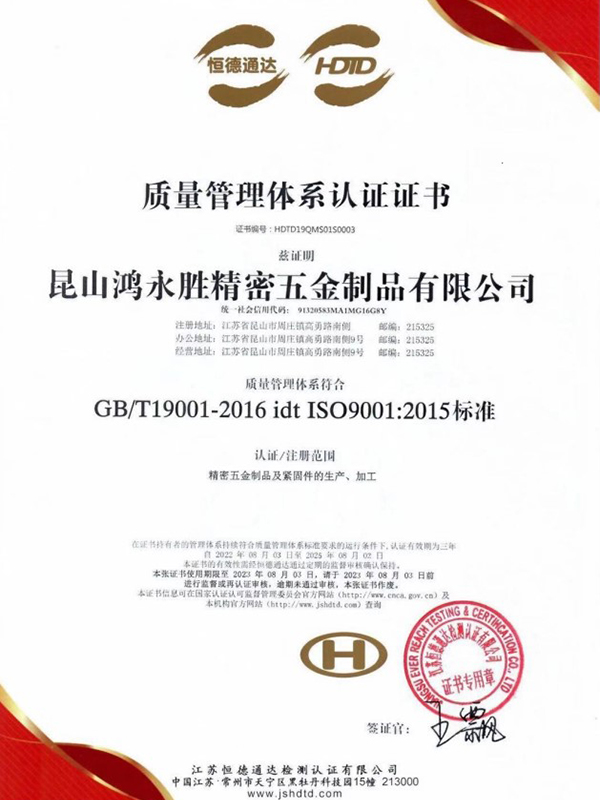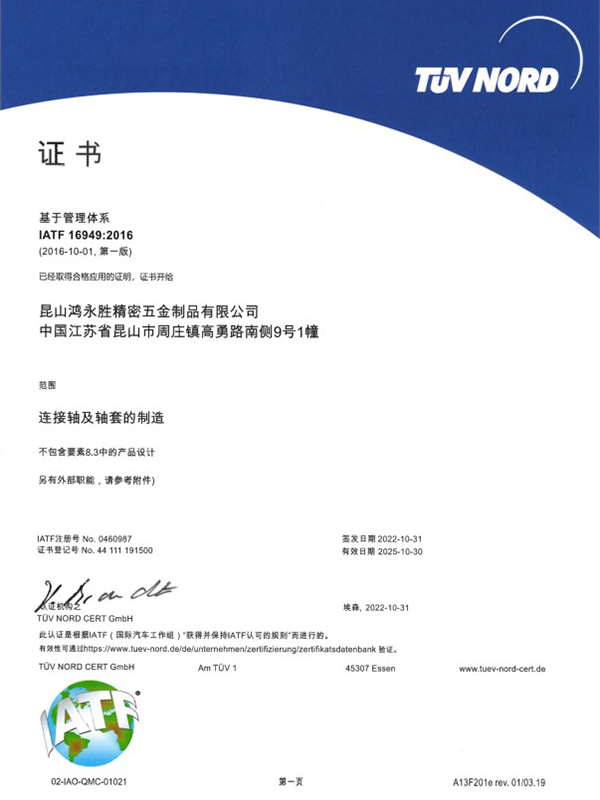Definition and Basic Concept of Hexagonal Rivet Nuts Hexagonal rivet nuts are internally threaded fasteners designed to create strong, load-bearing threads in thin or hollow materials where convention...
READ MOREThe company has obtained two quality system management certificates of ISO9001:2015 and IATF16949:2016.
At present, the company has been for Japan, Sweden, the United States, Singapore, Malaysia, Hong Kong and the Pearl River Delta and many other customers to provide services, now the main customers are: Japan Sharp (SHARP), Japan SMC, Japan Panasonic (Panasonic), the Swedish automobile VOVOL, etc., all the fixed assets investment of more than 30 million dollars, welcome friends from all walks of life to the factory to visit, study, consulting and come! We welcome friends from all walks of life to visit our factory, investigate, consult and come to us for sample processing.
We are looking forward to establishing a good business partnership with you with mutual trust and reciprocity!
-
-
Understanding Sealing Requirements in Hydraulic and Pneumatic Systems Hydraulic and pneumatic connections operate under internal pressure, media flow, and frequent pressure fluctuations. In these syst...
READ MORE -
Introduction to Screw Hardware Screw hardware is a fundamental component in construction, manufacturing, and DIY projects. It plays a critical role in joining materials securely, providing structural ...
READ MORE -
Introduction to Round Head Cross Bolts Round head cross bolts are a type of fastener widely used in construction, machinery, and industrial applications. They feature a rounded head with a cross slot ...
READ MORE
Are non-standard stainless steel studs compatible with standard nuts and other fasteners?
Non-standard stainless steel studs may or may not be compatible with standard nuts and other fasteners, depending on the specific modifications made to the studs.
Thread Type and Pitch: If the non-standard stainless steel studs have the same thread type and pitch as standard studs, they should be compatible with standard nuts and other fasteners designed for those specifications.
Length and Diameter: The length and diameter of the non-standard stainless steel studs must match the requirements of the application and be compatible with the size of the standard nuts and fasteners intended to be used with them.
Material Compatibility: Both the non-standard stainless steel studs and the standard nuts and fasteners should be made from materials with similar properties to ensure compatibility in terms of strength, corrosion resistance, and other factors.
Special Features: If the non-standard stainless steel studs have special features or modifications that affect their interaction with nuts and fasteners (such as grooves, flanges, or specialized coatings), compatibility should be assessed accordingly.
Customization: In some cases, non-standard stainless steel studs may be customized to be compatible with specific nuts or fasteners, either by modifying the studs themselves or by providing corresponding custom nuts or fasteners.
What are the advantages of using non-standard stainless steel studs over standard studs in certain applications?
Enhanced Strength: Non-standard stainless steel studs can be manufactured using advanced processes such as cold forging, hot forging, or precision machining, resulting in improved strength and durability compared to standard studs. This increased strength is beneficial in applications where higher load-bearing capacity is required.
Corrosion Resistance: Stainless steel inherently possesses excellent corrosion resistance properties. Non-standard stainless steel studs can be further optimized with specialized coatings or treatments to enhance their resistance to corrosion, making them ideal for use in harsh or corrosive environments.
Temperature Resistance: Stainless steel exhibits high temperature resistance, making non-standard stainless steel studs suitable for applications involving elevated temperatures or thermal cycling. They maintain their mechanical properties and structural integrity even under extreme heat conditions.
Wear Resistance: Non-standard stainless steel studs can be engineered to withstand wear and abrasion better than standard studs, prolonging their service life and reducing the need for frequent replacements in demanding applications.
Chemical Compatibility: Stainless steel is resistant to a wide range of chemicals, acids, and solvents, making non-standard stainless steel studs suitable for use in industries where exposure to corrosive substances is common, such as chemical processing, oil and gas, and marine environments.



 русский
русский Español
Español